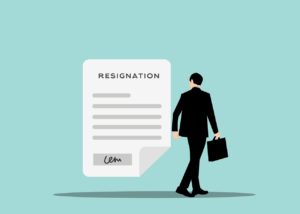Everyone has an opinion. But, everyone can’t be right. There’s always a set of best practices and then there are ways to do things that fall short of success or lead to bad outcomes. So, this is why people seek advice from their family and friends when they want to start a small business. The trouble with this approach is that the people the entrepreneur is speaking to may not be the owner of a profitable small business. While it’s certainly understandable to seek advice from people you trust, that doesn’t necessarily mean they’re the best or only sources.
Remember, Real Friends are Supportive
Here’s another problem. There are a lot of individuals around you who will tell you that you can’t do it. Usually, this is based on fear, but can also manifest from those who are envious that you’re willing to take a risk to improve your life and be professionally successful. Then, there may even be people around you who went into business for themselves, but it didn’t work out.Ask business owners who specialize in the same niche as your startup if they have any tips. Business owners in your market know about accountants, lawyers, and recruiters who might be a good fit for your needs. They can make recommendations and point you in the right direction. —Entrepreneur.comWhile the reason that their businesses failed might not be direct to their own decisions, it’s generally a safe bet. Even if it was circumstances beyond their control, successful business owners are the ones who find a way through tough times, endure, and come out on the other side. To put it much more plainly, if you’re seeking advice from people who have failed in their own business ventures, you’re speaking to the wrong people, unless they have gone on to succeed in other ventures by learning from their failures. Failures can be the precursor to success if we learn from them.
Best Places to Seek Business Advice
Fortunately, there are a few places you can go to get reliable, actionable advice about starting your own business. Here are the best places to seek entrepreneurial advice that will help you get started in the right direction:- Successful individuals in the industry. Sure, this sounds all too obvious. But, a lot of people who want to go into business for themselves are fearful of speaking with people that are already successful in the industry. Now, that sounds strange, but it makes sense if you think about it in a different way. Those who avoid successful individuals in the industry into which they want to enter, typically don’t want to give up their plans – which is to say their strategies and secrets. So, they make the mistake of being protective of their ideas, without knowing if said ideas are actually good or bad.
- Small business development groups. There are small business development groups that can help you get some of the logistics worked out and even provide a little friendly advice that you may not have thought of on your own. But, here again, you must be willing to share your ideas with others. Doing so will allow other people to gauge your ideas and their merit.
- Local industry trade associations. These industry trade associations exist to promote their industry, which is their sole purpose. You’ll learn a lot about the industry, and perhaps your own niche, along with some tricks of the trade and how your competition deals with its challenges.



